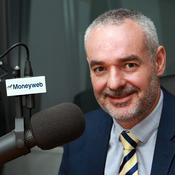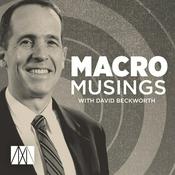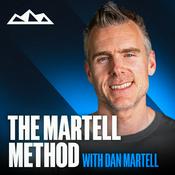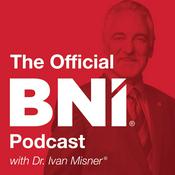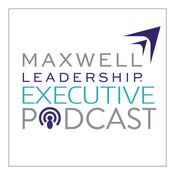113 episodes
Connected and Competitive: African Transport Infrastructure Lessons from the Front Lines
2026/2/18 | 14 mins.Key Themes from the Discussion
Public-Private Partnerships (PPPs) and Stakeholder Participation
Drawing from experience on cross-border projects like the Maputo Corridor, Hannes stresses that successful PPPs require early, genuine, and integrated stakeholder engagement (communities, businesses, government departments, media). It's not a one-way info dump - show willingness to adapt designs/processes based on feedback.
Address "what's in it for them" (e.g., subcontracting, jobs).
Harmonize legislation, operations, and processes across borders to avoid conflicts.
Communities are sophisticated (including professionals like engineers/lawyers); involve them respectfully to avoid resistance.
Direct, open, fact-based communication (including with media) builds the right perception and counters misinformation.
Innovative Approaches for Urban Resilience and Sustainability
Africa's rapid urbanization and congestion create big opportunities for smarter transport solutions.
Tolcon is evolving beyond traditional tolls/weighbridges/ITS to address emerging needs via its renewable energy and software companies.
Key innovations highlighted: Smart tolling (satellite-based, multi-lane free-flow, congestion/time-based pricing).
Integration with navigation apps (e.g., Google Maps/Waze) for incentives to avoid peak congestion.
Intelligent traffic management (adaptive traffic lights using real-time data).
These reduce unnecessary congestion, improve efficiency, and help make cities more competitive and sustainable while tackling infrastructure funding gaps.
Lessons for Future Urban Projects Proper project preparation is essential (feasibility studies, traffic/environmental assessments) to attract funders.
Strong project structure: Harmonize cross-border elements and create unified implementing authorities where possible (as in Maputo Corridor).
Prioritize local involvement for equitable benefits - make communities feel ownership, create jobs, and build local capacity rather than relying on external firms that "build and leave."
Tolcon's Excitement and Future Role
Hannes is optimistic about growing government willingness across Africa to develop infrastructure and close the competitiveness gap.
Tolcon wants to contribute by: Leveraging its deep African understanding and experience.
Delivering sustainable solutions with skill transfer, local employment/contractor use, and training - so countries become self-reliant.
Avoiding dependency; aim for projects where locals can operate independently after Tolcon exits.
This supports job creation, economic development, connected cities, and scalable transport corridors/urban mobility solutions.
The company is eager to participate in the expanding pipeline of African projects, especially ahead of events like Infrastructure Africa 2026.
Overview of Tolcon Group
Tolcon Group is a leading South African provider of transport infrastructure management services, operating since 1985 as an ISO-accredited company. It consists of six operating companies and specializes in:
Toll and weighbridge operations and maintenance
Freeway/intelligent transport systems
Route management and routine road maintenance
Toll system development and supply
Additional areas like renewable energy (solar) solutions, software development, and specialist electrical installations
The company has 40 years of experience in South Africa (e.g., managing contracts for SANRAL and private concessionaires) and is expanding into Africa, with an established presence in Zambia and active exploration in countries like Mozambique, Tanzania, Kenya, Nigeria, and Uganda. Tolcon positions itself as a trusted, integrity-driven African partner focused on sustainable growth, not just short-term projects.- Dive into the movement flipping Johannesburg's story from 'the city is finished' to 'watch this space'. In just two years Jozi My Jozi has lit up bridges, cleaned streets, built a full-size inner-city football field and signed a deal to revive the High Court precinct, all powered by citizens and smart partnerships.
Guest: Innocent Mabusela, Head of Stakeholder Relations and Communication at Jozi My Jozi
Host: Dan Claassen, Managing Director, Future Cities Africa Swartland Municipality: Stability-Driven Success Leading in Financial Excellence and Digital Innovation
2025/12/11 | 16 mins.Welcome to the Local Government Innovation Series on Future Cities Africa, presented by Business Engineering.
Explore how Swartland Municipality keeps topping national rankings for financial sustainability, ease of doing business, and digital innovation - from launching South Africa's first 'IDP in Your Pocket', to paperless land-use and building-plan portals that unlock rapid development, to turning a devastating 2020 ransomware attack into even stronger systems. Swartland is proof that a small municipality can lead the way.
Guests from Swartland Local Municipality
Joggie Scholtz - Municipal Manager
Alwyn Zaayman - Senior Manager: Development Management
Olivia Fransman - Senior Manager: Strategic Services
Host
Dan Claassen, Managing Director, Future Cities Africa- Dive in to what rapid urbanisation actually looks like on the ground: from the unique challenges of a 30-year-old democracy and a super-young population, to smarter-city solutions that actually work, future-proof planning, and how to deliver services to millions while building climate resilience – without bankrupting municipalities or repeating yesterday's mistakes.
- Dan Claassen sits down with Bronwyn Williams, co-author of the explosive new book Survive the AI Apocalypse: A Guide for Solutionists.
It calls the next decade a full-on reset: jobs evaporating, deepfakes everywhere, every old life script burnt to the ground… and a supernova of brand-new choices exploding open.
A lot of people are freaking out – but what if this great shrinkage is actually our continent's biggest breakout moment ever?
Bronwyn's here to flip the fear into firepower.
Five hard hitting questions: from turning panic into solutionist superpowers, to building future African cities where humans and AI amplify each other instead of one wiping out the other.
More Business podcasts
Trending Business podcasts
About Future Cities Africa podcast
Future Cities Africa hosts discussions with thought leaders and experts at the forefront of major trends, projects, innovations, challenges and opportunities impacting the future of African Cities.
Major drivers such as rapid urbanisation, health crisis, climate change, inadequate infrastructure, technology advancement and more are creating an urgent need for African Cities to become sustainable, livable and workable.
New ways of thinking about governance, funding, mobility, urban planning and design, construction and implementation of projects coupled with major advancements in technology like 5G, blockchain, artificial intelligence, the internet of things, data science, machine learning, renewable energy and more give promise of an uncertain but exciting future.
To learn and stay at the forefront of trends, projects, innovations, challenges and opportunities impacting what future African Cities will look likesSubscribe to stay informed.
Podcast websiteListen to Future Cities Africa podcast, Aspire with Emma Grede and many other podcasts from around the world with the radio.net app
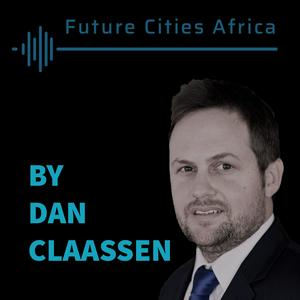
Get the free radio.net app
- Stations and podcasts to bookmark
- Stream via Wi-Fi or Bluetooth
- Supports Carplay & Android Auto
- Many other app features
Get the free radio.net app
- Stations and podcasts to bookmark
- Stream via Wi-Fi or Bluetooth
- Supports Carplay & Android Auto
- Many other app features


Future Cities Africa podcast
Scan code,
download the app,
start listening.
download the app,
start listening.











